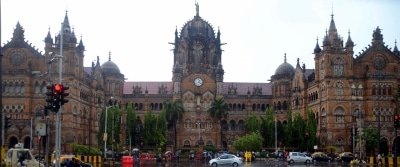“Today was my fourth day,” Valmiki, who is employed as a ticket collector, told IANS on Wednesday. “I worked for three days continuously and then I got an off yesterday.”
The 25-year-old stays in Churchgate and it takes him about 10 minutes to reach the station on his motorbike.
“Now we have shifts but before that, it was really hectic. There was once when I worked from 9am all the way to around midnight. The timing was completely based on the schedule of the trains and on the people who were coming in,” he said. “But now, I work about eight to nine hours and then someone else takes over.”
“It’s difficult but its a good thing because there are lakhs of migrants who want to go back home. You see them and you know how desperate they are. The government might be providing everything but they obviously feel safer at home. I mean, those who stay in the slums, they don’t even have their own toilets, they are using one that thousands of others may have used.”
The implementation of shifts have only made things relatively easy for Valmiki and other Railways employees. However, Mumbai’s humidity and heat is one that doesn’t allow too many layers of clothing but in this case, the officials have to wear masks and gloves while walking up and down the platforms in order to stay safe.
“We are entirely wet to be honest throughout the day, from top to bottom,” he said. “We have to wear the face shield also and around half an hour or an hour of wearing, my head starts aching. We are wearing gloves and the mask and we can’t drink water again and again. Every time we drink water, we have to sanitise the hands because you don’t know how many people touched that water bottle.”
In a way, however, Valmiki — who last played for India in 2016 — said the experience is good for him as it keeps his mind away from the uncertainty around his sporting career. He does his basic workout whenever he gets time at home, something which he says he cannot live without. More than anything else though, the work gives him satisfaction.
“After finally you are done and the train leaves, you hear the people cheering for us, for Maharashtra Police and for Indian Railways. They chant ‘Bharat Mata Ki Jai.'”
“We can see their happy faces and you feel great. Everyone is smiling at the end. They would be thanking us. These people are the backbone of our societies. They are the ones that make our society. I myself know what poverty is and what desperation that brings, so you do what you can to help out,” he said with a sense of satisfaction.
–IANS<br>rkm/aak/bbh<br>
